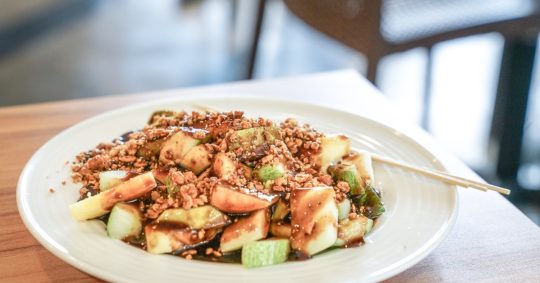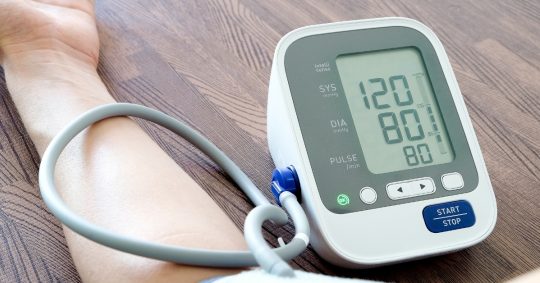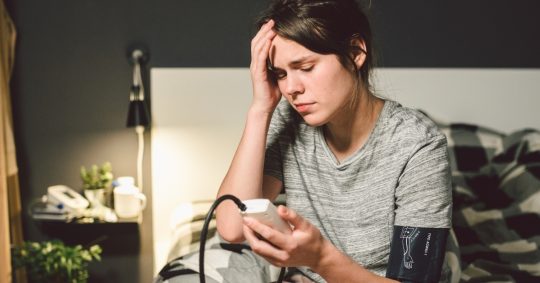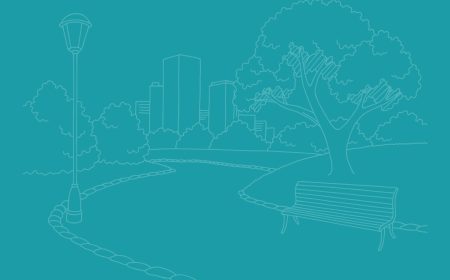
Rojak, delicious local fare best eaten in moderation
Most Singaporeans love their hawker fare – hokkien mee, satay, rojak and all things delicious. But did you know that with a dinner like that, you would have consumed about 4000mg of sodium? That is almost twice the recommended daily intake of sodium for adults in Singapore, before even taking into account dipping sauces!
In Singapore, high blood pressure, also known as hypertension, is a problem for almost 1 in 4 adults aged 30 to 69. When left untreated, high blood pressure can worsen and lead to serious health complications such as stroke and heart attack. High blood pressure also damages tiny blood vessels in the body, affecting your kidneys, nerves, brain and even eyesight.
If you have recently been diagnosed with high blood pressure, you may be looking for ways to keep it in check. Alongside taking prescribed medication from your doctor, here are some lifestyle changes that you can adopt for a healthier you.

You can measure your blood pressure at home. A blood pressure reading of systolic 130-139 mm Hg or diastolic 80-89 mm Hg and above may be a sign of hypertension.
Keep track of your sodium intake
Because a high sodium intake puts you at a higher risk of hypertension, maintain your sodium consumption to the recommended daily intake of 2000mg. This is about equal to one teaspoon of table salt. There are many smartphone apps in the market that can help you to keep track of how much sodium you are eating. Apps, like MyFitnessPal, can add up the amount of salt you have eaten in a day, and some may even alert you to over-consumption.
You will soon become familiar with the sodium content of foods that should be eaten in moderation. These types of food include:
- potato crisps (1089mg of sodium)
- canned soup (800mg of sodium)
- Double cheeseburger (1035mg of sodium)
- Cup noodles (861mg of sodium)
Bonus: Many of these smartphone apps can help you keep track of what else is in your food. By being aware of whether you are having too much sugar, or too little protein, you can make adjustments to your diet along the way.
Eat a healthy diet
Have you noticed that food in restaurants and coffee shops tend to be saltier than home cooked food? Prepare your own meals to control the amount of salt that goes into them! Here are some low-sodium tips for a nutritious meal at home:
- Fresh fruit and vegetables, especially bananas and kale – the potassium in bananas helps your body to eliminate sodium through urine and the magnesium of green leafy vegetables helps relax your blood vessels
- Yogurt with cereal or chia seeds for breakfast – avoid a high-sodium fast food breakfast, especially if you want to avoid bloating throughout the day
- Raw chopped salad without salad dressing – the flavour of salad can be enhanced with a spritz of lemon juice, pine nuts and herbs.
- Season your dish with black pepper, paprika, cumin seeds, garlic, ginger and other herbs which contain natural anti-inflammatory properties – you won’t need as much salt if your food is packed with flavour
- Plenty of plain water – water helps to flush your body of excess sodium through urine
Should you need to eat out, go for low sodium options, such as requesting for no salt on fries. You’ll be surprised to know that it is possible to enjoy the flavour of food without too much salt!
Lose weight and exercise regularly
High cholesterol can clog artery walls in the heart, making it work harder to pump blood through the body, resulting in high blood pressure. By keeping your Body Mass Index (BMI) within 18.5kg/m² and 23kg/m², you can lower your risk of hypertension. You may even reduce blood pressure by about 1mm Hg with every kilogram of weight loss¹.
To stay physically active, try aerobic exercises such as dancing, running and swimming to get the heart pumping, or simple strength training to help build muscle mass. You may even go for long walks, or do household chores to supplement activity levels throughout the week.
Did you know that being overweight can also cause sleep apnea (disrupted breathing during sleep), which further raises your blood pressure²?
Quit smoking and limit alcohol or caffeine consumption
Lifestyle choices like nicotine, alcohol and caffeine are also associated with an increase in blood pressure, especially in those who are overweight and have existing hypertension. While these products generally create a temporary surge in blood pressure that goes away rather quickly, smoking and drinking alcohol have many other well-documented risks that you’re better off without!
Reduce stress
Stress causes our bodies to release hormones that helped our Stone Age ancestors respond to fight-or-flight situations. But in today’s context, stress from responsibilities and a hectic schedule can lead to frequent and temporary spikes in blood pressure that may damage your organs in the same way long-term hypertension does. Step away from unhealthy coping habits like drinking alcohol and overeating, and use the following strategies to help manage your stress levels in your daily life:
- Simplify your schedule – focus on what you can influence and allocate time out of your day to do activities you love, like playing with pets or spending time with friends
- Practice mindfulness and breathing techniques – pay attention to how you feel and reorient your thoughts to remain calm and positive in times of pressure
- Get enough sleep – sleep deprivation, interrupted sleep and insomnia contribute to the lack of rest that your body needs to repair itself.

Hypertension is not just an old person’s condition – it is possible for younger adults to develop high blood pressure
Debunking the myths of high blood pressure
All around the world, high blood pressure is given a very serious nickname: The Silent Killer. While it puts you at an increased risk of heart disease, stroke and other health problems, people with high blood pressure sometimes experience no symptoms. That is why early detection and management of this condition is important.
In this section, we clear the air on some common myths surrounding high blood pressure so that you can take the right steps to treat it.
Myth 1: I don’t feel the effects of hypertension, so I don’t need to treat it.
Many people with high blood pressure do not experience any noticeable symptoms, and this condition can go unchecked for years. So does it matter? Yes! Think about the water pipes in your house. Constant high pressure can damage the pipes, and this is the same for our bodies.
Over time, high blood pressure can make blood vessels stiff, clogged or damaged. When this happens, the blood supply to our brain, eyes, kidneys and other organs are affected. All this can happen over the years without you feeling like anything is amiss. By treating it early, you can manage hypertension and prevent complications down the road.
Myth 2: It’s normal to get hypertension as we grow older.
Hypertension affects about a quarter of Singaporean adults, aged 30 to 69. It is not a normal part of the ageing process and needs to be monitored and treated.
Myth 3: I only need to take my medication on days where I have high blood pressure.
It is common for patients to miss doses once in a while, but skipping a dose on purpose might make it difficult to monitor and manage your blood pressure regularly. Speak to your doctor on how you can manage side effects, find affordable and suitable alternatives for the prescription you are on, set daily reminders to have your medication and educate yourself on the consequences of not treating high blood pressure.
Myth 4: I exercise regularly and eat well, so I don’t need to worry about high blood pressure.
Some patients, despite their healthy lifestyle, are genetically predisposed to developing high blood pressure. Regular check ups with a family doctor, or even self-monitoring at home with a blood pressure machine, can help with detecting the condition earlier on.
Summary
While it is important to see a doctor and take your daily medication for hypertension, there are many things you can do to adopt a healthier, more active lifestyle and manage high blood pressure naturally. Need a little support from your community to get started? Join NTUC Health’s Active Ageing Hubs to meet a community of like-minded active agers, fun exercises and health screenings, or sign up for a senior-friendly workout with our Active Ageing Services!
Get in touch with us
Exercise your way to good health with our senior-friendly kickboxing, X-Fit or Functional Strength Training classes by filling up a form.

